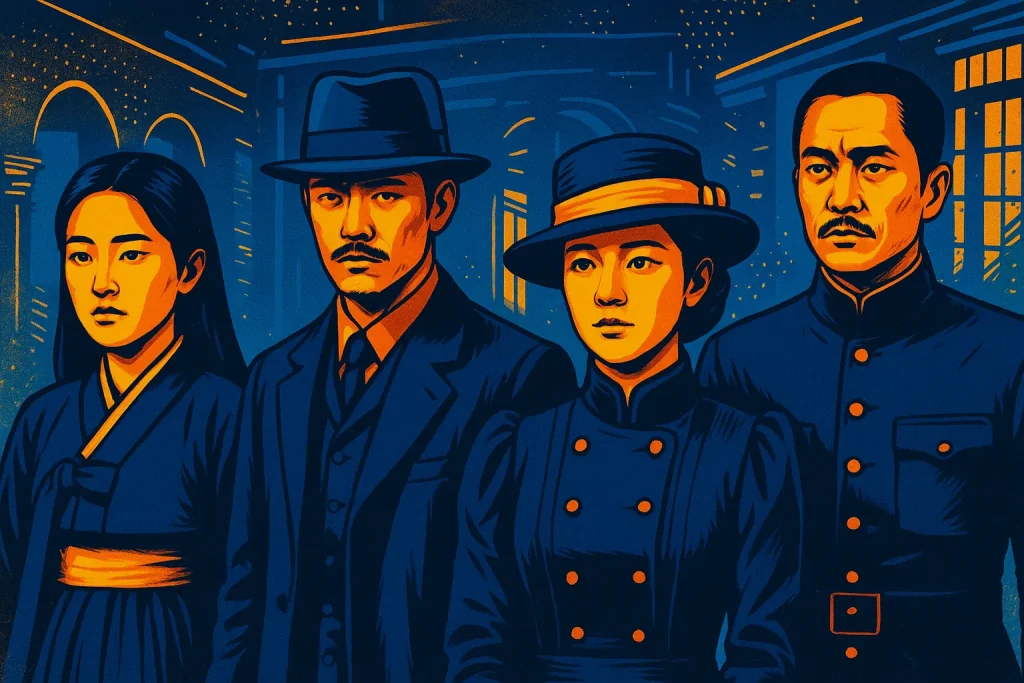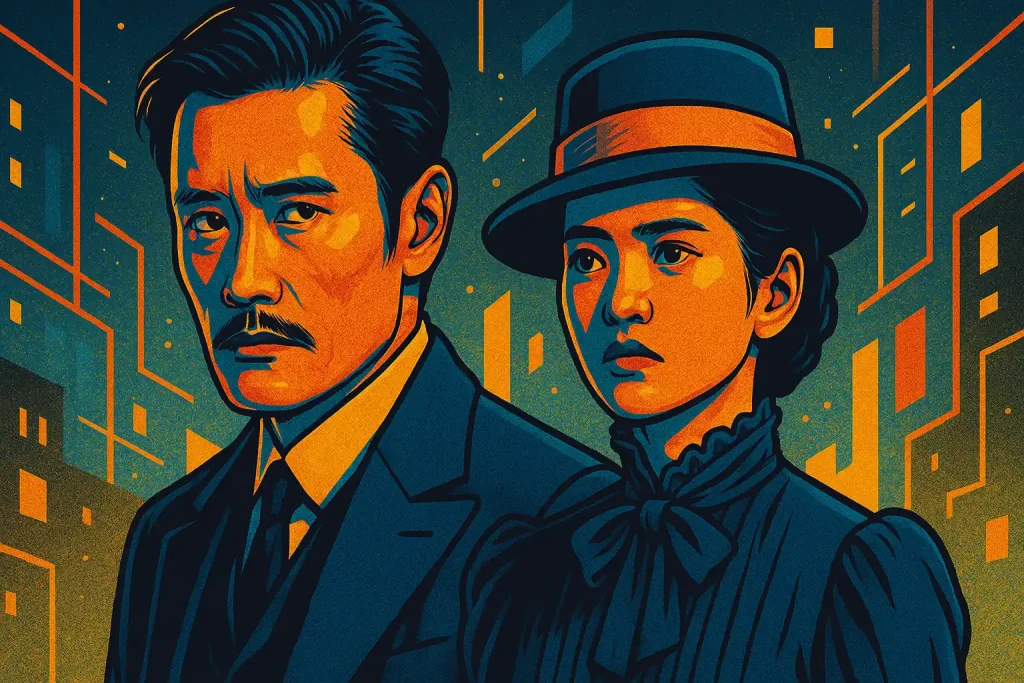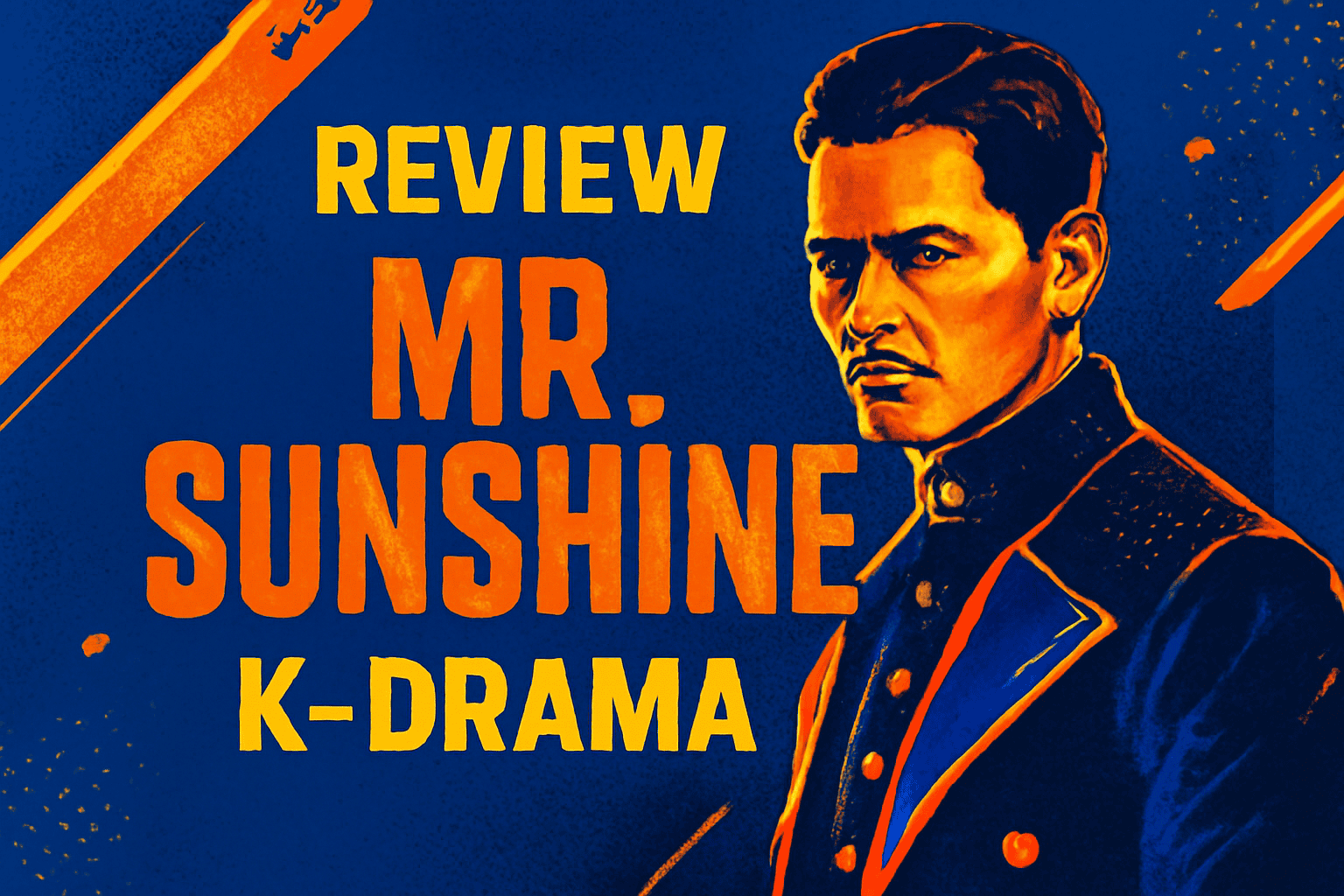Few Kdramas have achieved the scale, ambition, and emotional weight of Mr. Sunshine. This Mr. Sunshine review aims to explore why the series is considered a masterpiece of historical drama. Written by Kim Eun-sook (Goblin, Descendants of the Sun) and directed by Lee Eung-bok, the series aired in 2018 on tvN and Netflix, quickly becoming an international sensation.
The show is significant within the Kdrama category because it blends sweeping historical events with intimate character journeys. At its core, Mr. Sunshine tells the story of Eugene Choi, a Korean boy who escapes slavery in Joseon, only to return years later as a U.S. Marine officer. His path intertwines with noblewoman Go Ae-shin and other key figures during the turbulent era leading to Korea’s colonization.
In this comprehensive review of Mr. Sunshine, we’ll cover its narrative, performances, design, strengths, weaknesses, comparisons, and ultimate impact on the Kdrama landscape.
Overview
Mr. Sunshine is set in the late 19th and early 20th centuries, during a time when Korea faced internal turmoil and external threats from foreign powers. This review begins with its central figure, Eugene Choi (Lee Byung-hun), who returns to Joseon as a Marine officer after escaping slavery to America, and his complicated relationship with his homeland shapes the narrative’s emotional arc. Cinematic production in Mr. Sunshine stands out as one of its strongest elements, with movie-like visuals, a high budget, and grand sets that immerse viewers in a fully realized Joseon era.
The drama excels in portraying complex characters, with each figure carrying layered motivations, from noblewoman Ae-shin (Kim Tae-ri) to freedom fighter Goo Dong-mae (Yoo Yeon-seok), ensuring that every role feels vital to the overarching story. Political depth adds richness to the series as it dramatizes Korea’s resistance and struggle for sovereignty, capturing the intensity of a nation on the brink of transformation. At its core lies romance and tragedy, as the love story between Eugene and Ae-shin unfolds with both beauty and sorrow, symbolizing hope, sacrifice, and the resilience of the human spirit.
Mr. Sunshine received acclaim for blending historical authenticity with fictional storytelling, and this balance of fact and drama has helped cement it as a landmark series in the best K-dramas of its generation.
Pros and Cons

Pros
The drama excels through stellar cast performances, with Lee Byung-hun delivering gravitas and emotional depth as Eugene and Kim Tae-ri bringing elegance and resilience as Ae-shin, while the supporting cast, including Yoo Yeon-seok and Kim Min-jung, shine in equally compelling arcs. Its high production value stands out through cinematic visuals, stunning set design, and immersive costumes that authentically capture late-Joseon. The storytelling is rich, blending romance, tragedy, and politics with historical realities and personal struggles, ensuring audiences receive both education and entertainment. The memorable music, particularly tracks like “The Day” and “Sad March,” heightens emotional resonance and remains iconic among K-drama fans. Beyond artistry, its cultural significance is undeniable, introducing international audiences to Korea’s history while reinforcing national pride domestically.
Cons
Despite its strengths, the series has lengthy episodes that run over 70 minutes each, which can make pacing feel slow, particularly for international viewers accustomed to faster plots. The heavy political content, while historically valuable, may overwhelm those who prefer lighter and more accessible dramas. Melodramatic elements occasionally weigh the story down, with extended romantic gazes and repetitive dialogues that disrupt momentum. Its use of graphic violence, including depictions of slavery, war, and executions, can be unsettling for sensitive viewers. Finally, the predictability of its tragic direction, although powerful in emotional delivery, may frustrate audiences hoping for a happier resolution.
In-Depth Analysis
Narrative & Themes
The Mr. Sunshine performance in storytelling is remarkable. It intertwines personal stories with national history, making viewers feel invested not only in romance but in Korea’s fate. Themes of identity, loyalty, sacrifice, and unrequited love are central.
Acting & Characters
Lee Byung-hun anchors the drama with maturity, while Kim Tae-ri captivates with her noble yet rebellious Ae-shin. Yoo Yeon-seok’s Dong-mae adds moral ambiguity, and Byun Yo-han as Hee-sung provides warmth. Their arcs reflect various paths Koreans took during turbulent times.
Cinematography & Production
This Mr. Sunshine evaluation must note the breathtaking visuals. Sweeping landscapes, candlelit interiors, and period costumes create immersion akin to a feature film. Director Lee Eung-bok’s attention to detail ensures authenticity.
Music & Atmosphere
The OST underscores every scene’s emotion. The haunting melodies of “The Day” elevate romantic and tragic moments, embedding them in viewers’ memories.
Symbolism & Impact
The drama symbolizes resilience against oppression. Eugene’s dual identity (Korean-born, American-raised) mirrors Korea’s struggle with modernity and tradition. Ae-shin’s choice between love and duty resonates universally.
Overall, the review confirms it as both a historical lesson and an emotional epic, blending artistry with cultural storytelling.
Comparison

| Comparison | Similarities | Differences |
|---|---|---|
| Empress Ki | Both explore historical backdrops and personal sacrifice. | Empress Ki emphasizes palace intrigue, while Mr. Sunshine expands to international politics, colonial struggles, and resistance movements. |
| The Light in Your Eyes | Both examine themes of identity and sacrifice. | The Light in Your Eyes focuses on time and personal identity, while Mr. Sunshine explores exile, return, and belonging on a national scale. |
| Western Period Dramas (Downton Abbey, The Crown) | All dramatize social change and historical transitions. | Mr. Sunshine carries more intense political stakes and tragic romance compared to the societal focus of Western dramas. |
| General Distinction | Shares emotional depth with other dramas. | Where others prioritize entertainment, Mr. Sunshine succeeds as art, history, and epic tragedy combined. |
Conclusion
To conclude the series is a landmark achievement in Kdrama. Its combination of sweeping visuals, compelling performances, and poignant storytelling make it unforgettable. While it demands patience due to its pacing and heavy content, the rewards are immense for viewers seeking depth and artistry. As one of the best Mr. Sunshine in Kdrama, it educates international audiences on Korean history while delivering a love story that lingers in the heart. For fans of epic, tragic, and meaningful dramas, Mr. Sunshine is highly recommended.
Rating
This Mr. Sunshine rating is 4.7 out of 5 stars. While slightly weighed down by pacing and length, it excels in acting, production, and storytelling. A true masterpiece that sets the standard for historical Kdramas.
FAQ
FAQ
What is Mr. Sunshine about?
Mr. Sunshine is a historical Kdrama about Eugene Choi, a Korean boy who escapes slavery, becomes a U.S. Marine, and returns to Joseon during the late 19th century, where he becomes involved in love, politics, and the fight for Korea’s sovereignty.
What are the strengths and weaknesses of Mr. Sunshine?
Strengths include stellar performances, cinematic visuals, a powerful OST, and deep historical themes. Weaknesses include lengthy episodes, slower pacing, and heavy political content that may overwhelm some viewers.
Is Mr. Sunshine worth watching?
Yes. Mr. Sunshine is highly recommended for viewers who enjoy epic historical dramas, tragic romance, and political intrigue. Its depth and artistry make it one of the most celebrated Kdramas of all time.
Resources
- Netlifx: Stream Mr. Sunshine
- Koreatimes: Mr. Sunshine Critisicm
- Reddit: Mr Sunhine Kdrama Community
- Youtube: Mr. Sunshine OST
- AsianWiki Mr. Sunshine Cast info

